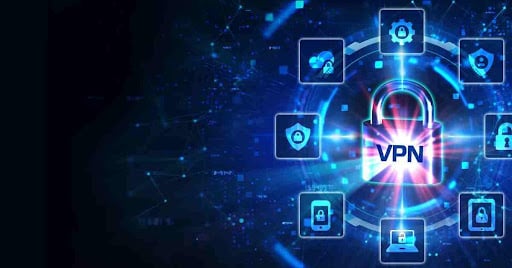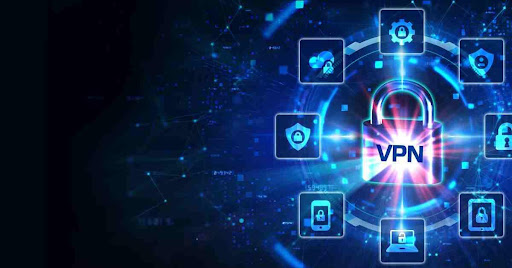
VPN usage has seen an increase in recent years.
With cyberattacks on the rise and affecting both people and businesses, a lot have turned to other security methods. Among these methods is the usage of VPN.
In fact, data based on the VPN Adoption Index shows that there were 785 million VPN downloadsa rise of 184% in 2021. It is no understatement that VPN is and will continue to skyrocket even in the coming years.
The main factor driving this usage is that not only VPNs are readily available but they are also generally cheaper to implement.
Businesses are also greatly contributing to this rise since employees are able to establish secure connections to their workplace. This is especially true for remote employees whose workplace network may be restricted.
In this article we will be discussing 5 main uses of VPNs.
Let’s get started.
-
Anonymous Browsing
Perhaps one of the most important uses of VPNs is to provide anonymity.
Personal data is your most valuable asset, and it is out of the question that you should go to great lengths to protect it.
In fact, a VPN market report by Security.org indicates that 50% of internet users use VPNs for privacy reasons. Without a VPN, your IP address is used to track your identity and location.
Since your local IP is unique to your network, it takes little effort for hackers and snoopers to determine your precise location.
How a VPN works in granting you anonymity is by assigning you a new IP.
A VPN encrypts your traffic such that it becomes untraceable back to you. You can enjoy safe internet browsing without worrying about getting sensitive information compromised.
Even if you happen to stumble across a malicious site, your identity will remain hidden. Your payment information is also kept safe from prying eyes, lowering cases of fraud.
-
Secure Browsing
Recent years have seen an increase in work-from-home businesses.
You often perform business operations using a personal home network as you work from home. But sometimes, you may be forced to use public Wi-Fi, especially when traveling. When using public networks, you and your business’s data are at a high risk of cyberattack.
Some public networks are set up by malicious users aiming to access your personal information and data.
Such users masquerade as genuine networks only to take advantage of you. When you connect to an unsafe public network, hackers can intercept your data and even send malware to your devices.
How a VPN works to prevent this is by encrypting your data as you send it through the unsafe network.
A VPN establishes a secure tunnel between you and your destination such that data sent through the channel is protected from malicious users. You can therefore worry less about your connection safety.
-
online safety
If you are not using a VPN, you face higher risks of becoming a cybercrime victim.
With your IP address exposed, cybercriminals can send phishing links or malware your way. To make matters worse, using a false IP address, they are able to impersonate you through IP spoofing. This allows cybercriminals to carry out malicious actions using your identity, often without detection.
According to a 2021 Cyber Threat Defense Report, 85% of organizations suffered from a successful cyber-attack in the previous year. This shows that you should start taking extra security measures like using VPNs.
Using a VPN, it is far less likely that your security and identity will be compromised.
A VPN uses strong encryption algorithms to scramble your data traffic. With your data scrambled, it becomes basically unreadable and useless to hackers.
This strong encryption is even able to keep you safe from IP spoofing and will decrease the chances of identity impersonation.
-
remote access
Nowadays, business operations are no longer confined to their organization’s geographical location.
However, without a VPN, remote working may prove to be a challenge if you are unable to access your organization’s resources. Certain data and information may be set to be only accessible through your business’s network.
What is a VPN’s role in remote access?
By establishing a VPN connection to the network and resources of your business, you can securely grant access to particular employees inside your organization
According to a 2022 VPN risk report by Cybersecurity Insiders and Zscaler, there was an increase from 93% to 95% of enterprises using VPN services for safe remote access. You may also want to take action.
You can set access to various organizational data using separate VPNs. This is basically how a VPN works to grant you more control to manage access.
Only staff members with specific access to these VPNs will have access to this sensitive information.
Managing access to data in your business is a vital security measure. You can make sure that only authorized employees have access to certain data as you see fit.
-
Overcoming Geo Restrictions
The internet is filled with various kinds of information and entertainment.
However, not all the information is accessible to everyone. You may often come across content that is restricted to a certain region. Whether it is videos, data, or social media, it can be annoying to find your favorite show or service unavailable to you.
This is because your IP address, which shows your physical location, is checked, and content is kept hidden for that address.
Here’s how a VPN works to solve this.
A VPN routes your traffic through a remote server in the country you are trying to access the restricted content. This gives you a temporary, regional IP address of the target region, which is used to mask your local IP.
Because of this, your IP is indistinguishable by the geo-restricted platform.
Moreover, using VPN to break geo-restrictions gives you access to your favorite shows and programs.
Conclusion
Virtual Private Networks are, therefore, a safe way for you to access the internet.
Seeing how VPNs are easy and cheap to implement, their usage is bound to continue increasing by the day.
If you are looking for ways to improve your online safety, you should start using a VPN.
A 2020 report by GlobalWebIndex shows that 51% of interviewed VPN users use VPNs to protect themselves on public networks. So as you even decide to use public networks while on the go, a VPN is simply a necessity to protect your information.
VPNs are able to strengthen your security while retaining an easy and comfortable user experience. This is basically how a VPN works.
The increased usage of VPNs also stems from the increased need for internet anonymity.
Since VPNs provide the ability to offer control access services to businesses, they are important in promoting productivity among workers.
It doesn’t matter what kind of business you are in; a VPN is customizable to meet the specific needs you desire.


;Resize=(1200,627)&impolicy=perceptual&quality=medium&hash=474ce1ad28d4afc80b500f7b8941dc528995c751f9314ed26fb8e36fb6bebdf2)
;Resize=(1200,627)&impolicy=perceptual&quality=mediumHigh&hash=b3ff08661e5e67d8f2654c385ad2aaaef1955c369247997c553bf0fe2982eddb)
;Resize=(1200,627)&impolicy=perceptual&quality=mediumHigh&hash=1c8bd5592f476c3f706a3be4f38139080232e609a81d784e541f92421aed6b33)
;Resize=(1200,627)&impolicy=perceptual&quality=mediumHigh&hash=51d3f02981ce0004f9e316ebfb81c9b734f448d2a0aba8aa5872b56b7509346b)
;Resize=(1200,627)&impolicy=perceptual&quality=mediumHigh&hash=67dcc5c48be0c3c2b0b9299d7f94f406a445674f057f4f04e3aa3fcfae7729ea)
;Resize=(1200,627)&impolicy=perceptual&quality=mediumHigh&hash=acb5a5b18b19fd8f1a69f0a24b833fb8b3532b7483edcdb6b818bb1b2d42d848)






